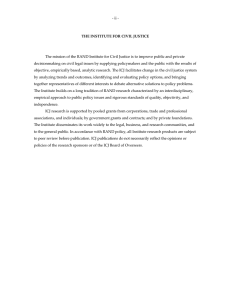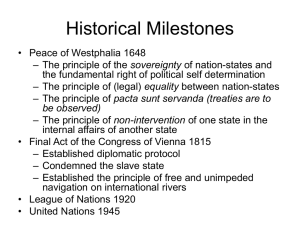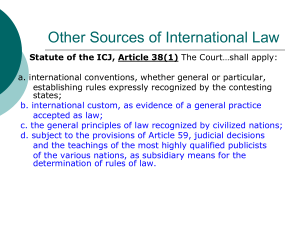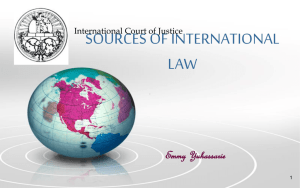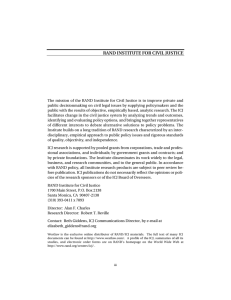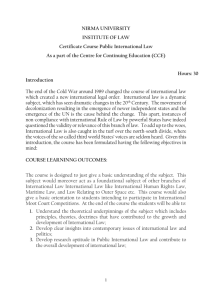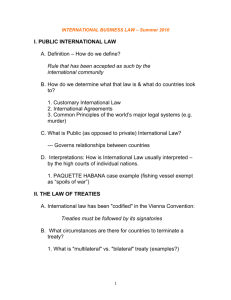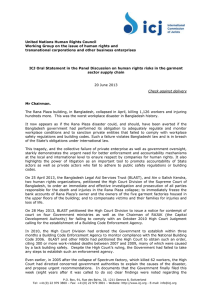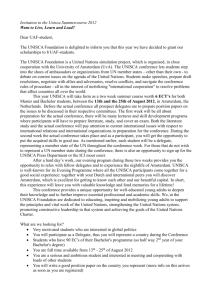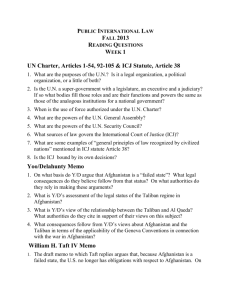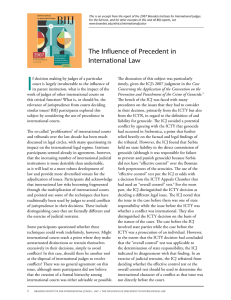ICJ Statute: International Law Sources & Jurisdiction
advertisement
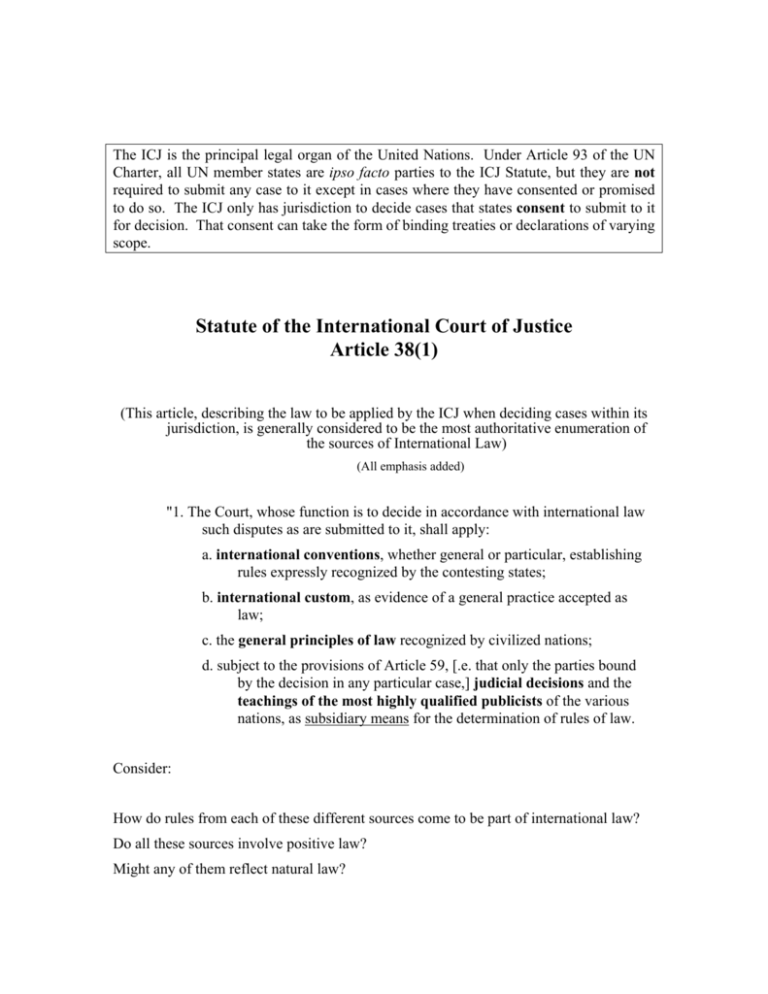
The ICJ is the principal legal organ of the United Nations. Under Article 93 of the UN Charter, all UN member states are ipso facto parties to the ICJ Statute, but they are not required to submit any case to it except in cases where they have consented or promised to do so. The ICJ only has jurisdiction to decide cases that states consent to submit to it for decision. That consent can take the form of binding treaties or declarations of varying scope. Statute of the International Court of Justice Article 38(1) (This article, describing the law to be applied by the ICJ when deciding cases within its jurisdiction, is generally considered to be the most authoritative enumeration of the sources of International Law) (All emphasis added) "1. The Court, whose function is to decide in accordance with international law such disputes as are submitted to it, shall apply: a. international conventions, whether general or particular, establishing rules expressly recognized by the contesting states; b. international custom, as evidence of a general practice accepted as law; c. the general principles of law recognized by civilized nations; d. subject to the provisions of Article 59, [.e. that only the parties bound by the decision in any particular case,] judicial decisions and the teachings of the most highly qualified publicists of the various nations, as subsidiary means for the determination of rules of law. Consider: How do rules from each of these different sources come to be part of international law? Do all these sources involve positive law? Might any of them reflect natural law?
